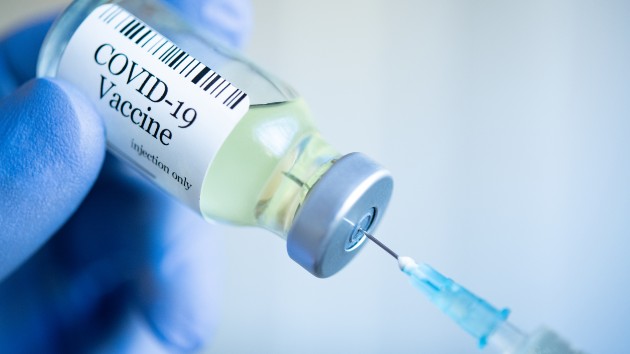By MEREDITH DELISO, ABC News
(NEW YORK) — AstraZeneca’s COVID-19 vaccine is not linked to an increased risk of blood clots and its benefits “outweigh the risk of side effects,” the European Union’s drug regulatory agency said Thursday.
The preliminary review by the European Medicines Agency (EMA) comes after several European nations, including Germany, France, Italy, Spain and the Netherlands, paused the vaccine’s rollout amid reports of dangerous blood clots in some recipients.
The vaccine has been approved by dozens of countries, including many in Europe. AstraZeneca has not requested emergency use authorization in the United States yet. The company plans to submit a formal request to the U.S. Food and Drug Administration once safety and effectiveness data from a large-scale U.S.-based clinical trial is completed, possibly in April.
France and Italy had previously said they would resume administering the AstraZeneca vaccine if the EMA confirmed it was safe to use.
The agency’s safety committee “has come to a clear scientific conclusion,” EMA Executive Director Emer Cooke said during a press briefing Thursday. “This is a safe and effective vaccine.”
In its review, the EMA said that the number of blood clotting events reported after vaccination was lower than what would be expected in the general population — allowing it to confirm that the AstraZeneca vaccine is not associated with an overall increased risk of blood clots.
However, it said the vaccine may be associated with certain rare types of blood clots, including those in which there are low levels of blood platelets, which help the blood to clot.
As of Tuesday, there were seven cases of blood clots in multiple blood vessels and 18 cases of clots in the vessels draining blood from the brain (a condition known as cerebral venous sinus thrombosis) out of some 20 million people who had received the vaccine in the U.K. and European Economic Area, the agency said.
“A causal link with the vaccine is not proven, but is possible and deserves further analysis,” the agency said.
There “remain some concerns” for younger patients in these rare cases, it said, noting that most occurred in people under 55 and a majority were also women.
“Steps are already being taken to update the product information for the vaccine to include more information on these risks,” the EMA said.
The EMA’s review did not find any evidence of a problem with specific batches of the vaccine or manufacturing sites.
Earlier on Thursday, the U.K.’s Medicines and Healthcare products Regulatory Agency (MHRA) also said it determined that the AstraZeneca vaccine does not cause blood clots in veins, based on available data from 11 million people vaccinated.
“The MHRA’s advice remains that the benefits of the vaccines against COVID-19 continue to outweigh any risks and that the public should continue to get their vaccine when invited to do so,” the regulator said.
Following the announcements from the EMA and the MHRA, AstraZeneca said it will “continue to work closely with health authorities to ensure the appropriate use” of its COVID-19 vaccine.
“Vaccine safety is paramount and we welcome the regulators’ decisions which affirm the overwhelming benefit of our vaccine in stopping the pandemic,” Ann Taylor, chief medical officer for the British pharmaceutical company, said in a statement. “We trust that, after the regulators’ careful decisions, vaccinations can once again resume across Europe.”
The AstraZeneca vaccine was developed with the University of Oxford. It has been granted a conditional marketing authorization or emergency use in more than 70 countries. The World Health Organization has also granted it an emergency use listing, giving it the green light to be rolled out in over 140 countries through COVAX.
WHO European Director Hans Kluge on Thursday advised that countries continue to use the AstraZeneca vaccine.
“As of now, we do not know whether some or all of the conditions have been caused by the vaccine or by other coincidental factors,” he said at a press briefing. “At this point in time, however, the benefits of the AstraZeneca vaccine far outweigh its risks — and its use should continue, to save lives.”
Copyright © 2021, ABC Audio. All rights reserved.












